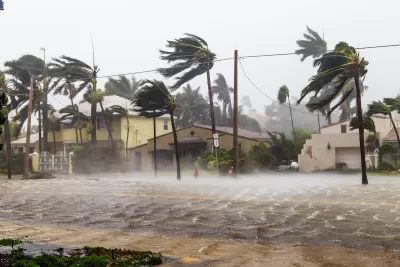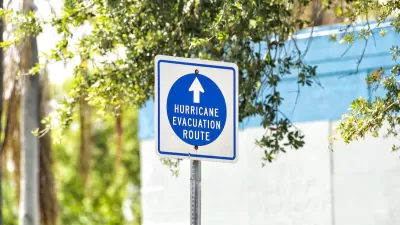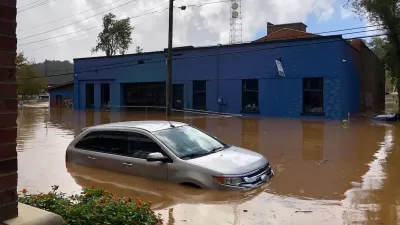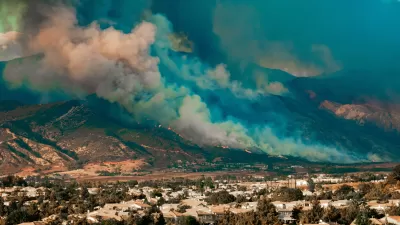Black Americans are flocking to southern states, but many popular destinations face growing threats from extreme weather.

An article for Capital B and republished in Inside Climate News by Adam Mahoney draws attention to a growing conundrum: as more Black Americans move to the South in search of affordability and good weather, they are increasingly at risk from climate disasters like hurricanes and wildfires. “Over the past decade, Texas and Florida, two states known for hurricanes and extreme heat waves – but mild winters – have seen the most new residents as roughly a third of relocating Americans say ‘better weather’ is the reason for their moves.”
As Mahoney explains, 94 percent of the nation’s Black population growth since 2020 has occurred in the South. Meanwhile, “The country’s most climate vulnerable counties are concentrated in the Southeast, according to the most comprehensive climate risk data available.” Since 2016, more than half of major weather-related power outages happened in Southern states.
“For Black folks, this presents a unique set of considerations — and challenges. It seems that in the attempt to escape the environmental racism and the poor health outcomes of the North and Midwest, Black people are essentially moving toward the epicenter of climate disasters, says Rhiana Gunn-Wright, the director of climate policy at the Roosevelt Institute.” According to research, Black Americans experience disparate outcomes from their white counterparts during disasters and recovery. “Even when Black residents receive recovery aid, white people who receive the same amount of federal assistance see their wealth rise, while Black residents see their wealth decline following disaster, a study by Rice University found.”
FULL STORY: Moving South, Black Americans Are Weathering Climate Change

Study: Maui’s Plan to Convert Vacation Rentals to Long-Term Housing Could Cause Nearly $1 Billion Economic Loss
The plan would reduce visitor accommodation by 25% resulting in 1,900 jobs lost.

Alabama: Trump Terminates Settlements for Black Communities Harmed By Raw Sewage
Trump deemed the landmark civil rights agreement “illegal DEI and environmental justice policy.”

Why Should We Subsidize Public Transportation?
Many public transit agencies face financial stress due to rising costs, declining fare revenue, and declining subsidies. Transit advocates must provide a strong business case for increasing public transit funding.

Paris Bike Boom Leads to Steep Drop in Air Pollution
The French city’s air quality has improved dramatically in the past 20 years, coinciding with a growth in cycling.

Why Housing Costs More to Build in California Than in Texas
Hard costs like labor and materials combined with ‘soft’ costs such as permitting make building in the San Francisco Bay Area almost three times as costly as in Texas cities.

San Diego County Sees a Rise in Urban Coyotes
San Diego County experiences a rise in urban coyotes, as sightings become prevalent throughout its urban neighbourhoods and surrounding areas.
Urban Design for Planners 1: Software Tools
This six-course series explores essential urban design concepts using open source software and equips planners with the tools they need to participate fully in the urban design process.
Planning for Universal Design
Learn the tools for implementing Universal Design in planning regulations.
Smith Gee Studio
Alamo Area Metropolitan Planning Organization
City of Santa Clarita
Institute for Housing and Urban Development Studies (IHS)
City of Grandview
Harvard GSD Executive Education
Toledo-Lucas County Plan Commissions
Salt Lake City
NYU Wagner Graduate School of Public Service





























